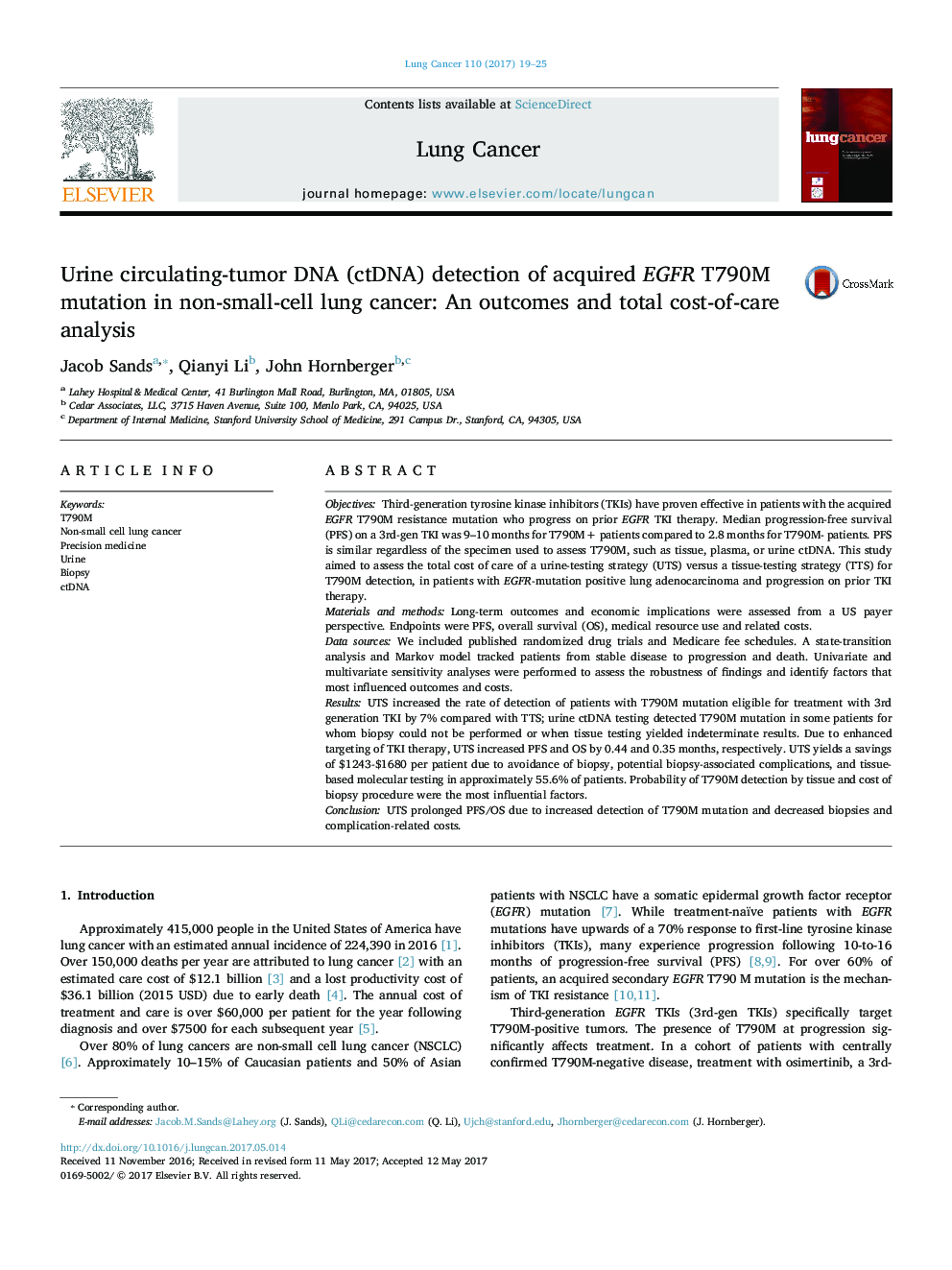| کد مقاله | کد نشریه | سال انتشار | مقاله انگلیسی | نسخه تمام متن |
|---|---|---|---|---|
| 5528384 | 1547957 | 2017 | 7 صفحه PDF | دانلود رایگان |

- A Markov model shows utility of a ctDNA urine test to identify EGFR T790M mutations.
- Urine testing avoided unnecessary biopsy, complications, and molecular assessment.
- Patient outcomes (PFS and OS) were slightly improved.
- Urine testing saved an average $1243-$1680 per patient.
ObjectivesThird-generation tyrosine kinase inhibitors (TKIs) have proven effective in patients with the acquired EGFR T790M resistance mutation who progress on prior EGFR TKI therapy. Median progression-free survival (PFS) on a 3rd-gen TKI was 9-10 months for T790M+ patients compared to 2.8 months for T790M- patients. PFS is similar regardless of the specimen used to assess T790M, such as tissue, plasma, or urine ctDNA. This study aimed to assess the total cost of care of a urine-testing strategy (UTS) versus a tissue-testing strategy (TTS) for T790M detection, in patients with EGFR-mutation positive lung adenocarcinoma and progression on prior TKI therapy.Materials and methodsLong-term outcomes and economic implications were assessed from a US payer perspective. Endpoints were PFS, overall survival (OS), medical resource use and related costs.Data sourcesWe included published randomized drug trials and Medicare fee schedules. A state-transition analysis and Markov model tracked patients from stable disease to progression and death. Univariate and multivariate sensitivity analyses were performed to assess the robustness of findings and identify factors that most influenced outcomes and costs.ResultsUTS increased the rate of detection of patients with T790M mutation eligible for treatment with 3rd generation TKI by 7% compared with TTS; urine ctDNA testing detected T790M mutation in some patients for whom biopsy could not be performed or when tissue testing yielded indeterminate results. Due to enhanced targeting of TKI therapy, UTS increased PFS and OS by 0.44 and 0.35 months, respectively. UTS yields a savings of $1243-$1680 per patient due to avoidance of biopsy, potential biopsy-associated complications, and tissue-based molecular testing in approximately 55.6% of patients. Probability of T790M detection by tissue and cost of biopsy procedure were the most influential factors.ConclusionUTS prolonged PFS/OS due to increased detection of T790M mutation and decreased biopsies and complication-related costs.
Journal: Lung Cancer - Volume 110, August 2017, Pages 19-25